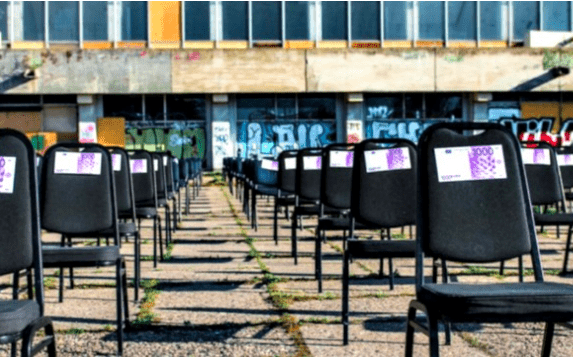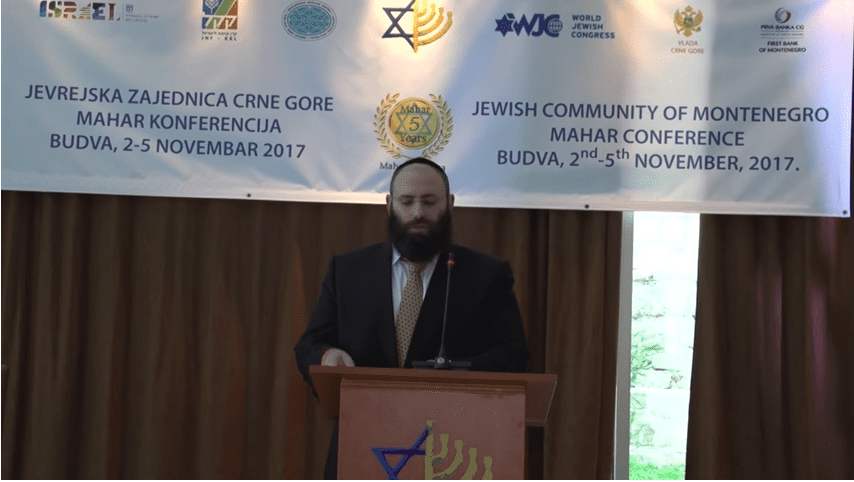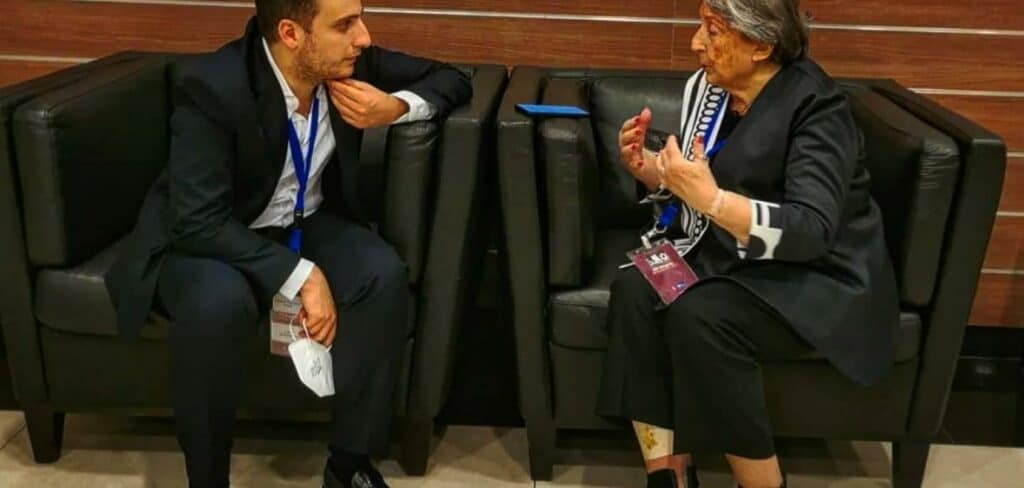The head of Lithuania’s Jewish community has strongly condemned a government-sponsored publicity stunt that showed hundreds of chairs marked with fake 1,000-euro notes lined up outside a state-of-the-art convention center that is being constructed on top of a Jewish cemetery.
Simon Gurevich — chair of the Jewish community in the capital Vilnius — told local broadcaster LRT that the display staged by tourism agencies was “immoral,” as the chairs had been stacked “over the heads and bodies of the people who created the ‘Jerusalem of the North,’” invoking a term that was often used to describe Vilnius, then known as Vilna, before the Nazi Holocaust.
Jewish activists and human rights groups have spent the past three years opposing the government’s construction of the convention center on the site of the Old Šnipiškės Jewish Cemetery, where thousands of graves are buried beneath the surface.
Last Friday’s display at the site was organized by Lithuanian tourism chiefs as a mocking response to the continued delays in the construction of the convention center, with the fake cash intended to symbolize the amount of money allegedly being lost because of the continued protests of Jewish organizations and others.
According to Defending History — a specialist website that monitors and analyzes the official depiction in contemporary Lithuania of the country’s Jewish past — Friday’s widely-reported display may have been the result of a photoshopping exercise, rather than an actual event.
One of the site’s reporters asked a contact at the Vilnius municipality “about whether the city’s permission had been given. The employee, who asked not to be named, said: ‘Of course it was virtual, photoshopped, but reported in the press release as being on the ground, in order to wind up the Jews so they will go crazy about their so-called cemetery.’”
Commented Defending History: “Whether on the ground or the web, this is one of the most disturbing manifestations of ‘elite antisemitism’ in Eastern Europe in recent times. Besides the humiliation of thousands of buried from the minority annihilated in the Holocaust, there is the classic antisemitic trope associating ‘Jews and banknotes,’ alongside the insinuation that only a convention center at this location can bring back the tourist industry after Covid-19.”
Local officials insist that there is no other appropriate site for the convention center, which is being presented as a major boon for the tourism and hospitality industry.
“We have been waiting for the Congress Center to be located in this place for many years, but in the face of the crisis, it is becoming critical for our sector,” Evalda Šiškauskienė, president of the Lithuanian Hotel and Restaurant Association, told local news outlets over the weekend.
The Article was published in the Algemeiner














